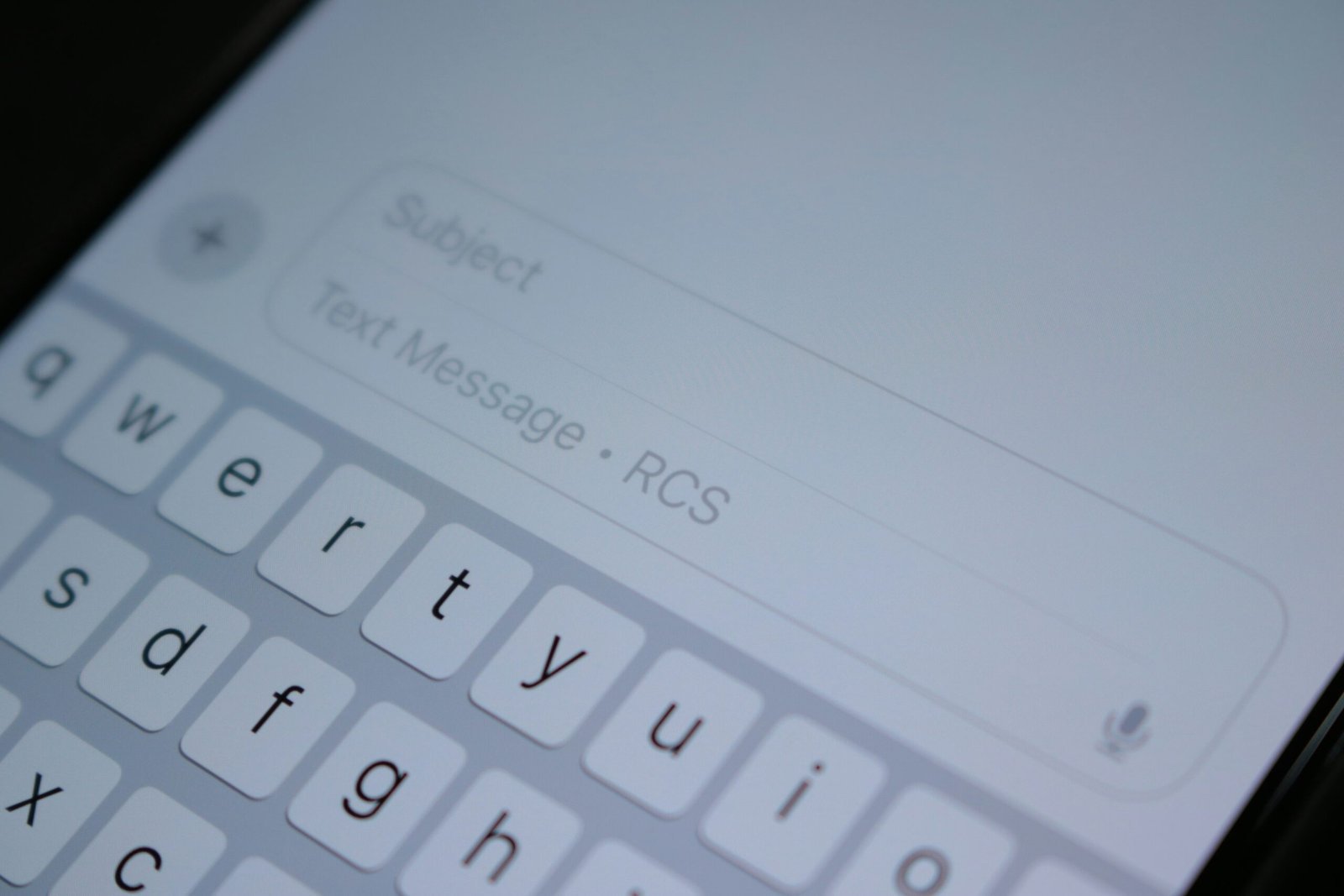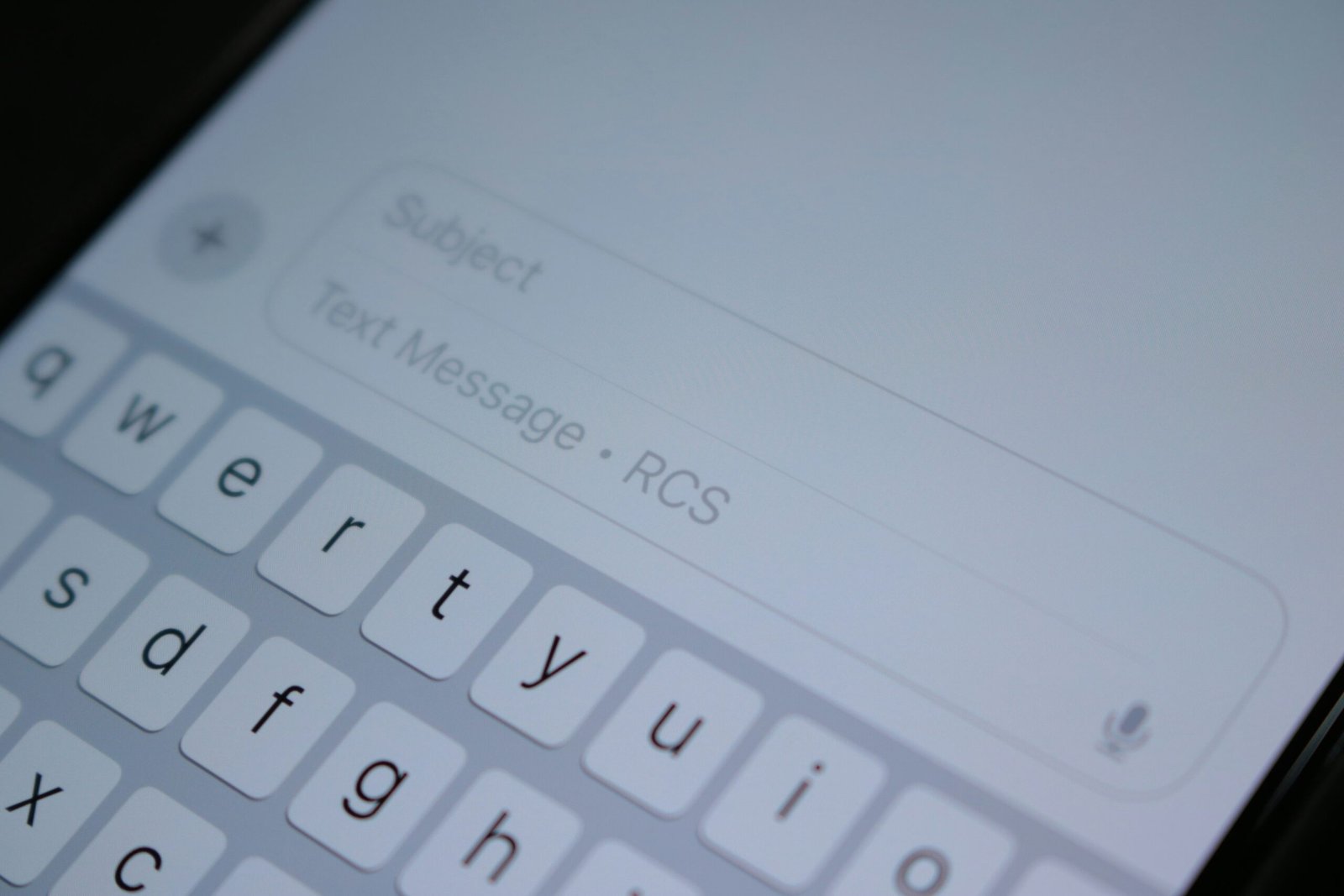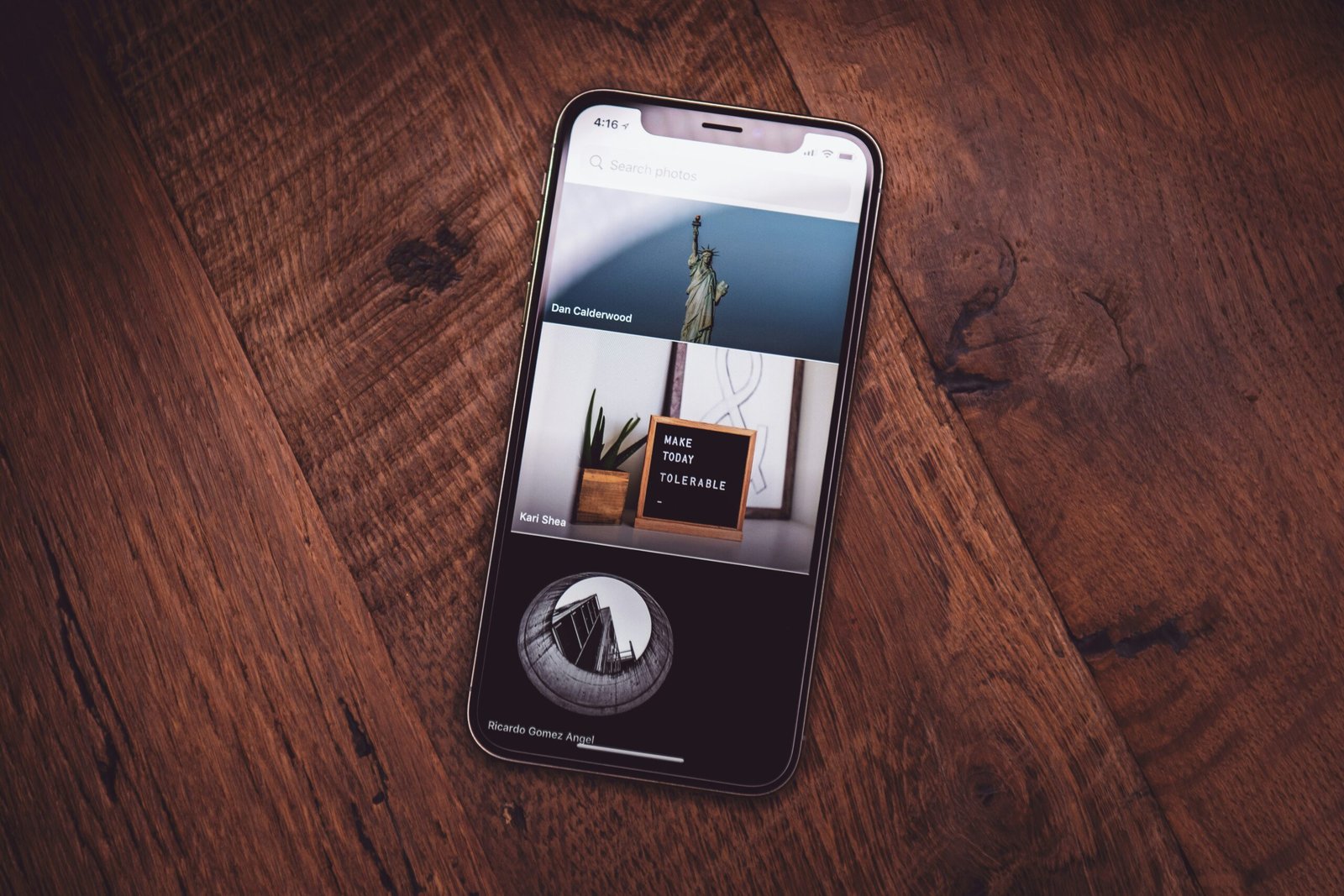Good News for Android Users: Apple Reportedly Brings RCS Messaging Support to Canada, Spain, and Other Countries with iOS 18 Developer Beta 3

Introduction to RCS Messaging
Rich Communication Services (RCS) messaging represents a significant evolution in mobile communication, offering a more dynamic and interactive experience compared to traditional SMS. Unlike SMS, which is limited to text and basic multimedia messages, RCS incorporates a range of advanced features that enhance the user experience. These features include read receipts, which notify the sender when their message has been read, and typing indicators, which show when the recipient is typing a response. Additionally, RCS supports the sharing of high-resolution images and videos, providing a richer media-sharing experience.
RCS messaging aims to bridge the gap between basic text messaging and more complex messaging apps like WhatsApp and Facebook Messenger. It does so by integrating features that users have come to expect from modern communication platforms, such as group chats, location sharing, and the ability to send and receive large files. These capabilities make RCS a compelling upgrade from the traditional SMS, which has remained relatively unchanged for decades.
The adoption of RCS has been steadily growing across various platforms. Major telecommunication companies and smartphone manufacturers have been working together to implement RCS as a universal standard. Google’s involvement has been pivotal in this regard, particularly with the development of the Google Messages app, which supports RCS on Android devices. Apple, historically known for its proprietary iMessage service, has been somewhat slower to adopt RCS, making the reported support in iOS 18 Developer Beta 3 a noteworthy development.
The introduction of RCS is seen as a significant step forward in the evolution of mobile communication. It promises to deliver a more seamless and enriched messaging experience, aligning more closely with user expectations in today’s digital age. By offering features that enhance the interactivity and immediacy of conversations, RCS stands poised to replace SMS as the default messaging standard across the globe.
Current State of Cross-Platform Messaging
The realm of cross-platform messaging has long been fraught with challenges, largely due to the lack of unified standards between Android and iOS. Android users, primarily reliant on Google’s ecosystem, and iOS users, deeply integrated into Apple’s ecosystem, face significant hurdles when attempting to communicate seamlessly. This disparity is most evident in the persistence of SMS as the primary mode of inter-platform communication. Despite being widely adopted, SMS is limited by its dated technology, lack of end-to-end encryption, and restricted media sharing capabilities.
In practice, these limitations manifest in various ways. Messages sent via SMS often fail to deliver the rich media experience that users have come to expect from modern messaging apps. High-quality images and videos are compressed, leading to a loss in clarity. Additionally, the absence of read receipts and typing indicators can make conversations feel less interactive and engaging. This fragmented experience is particularly pronounced when group messaging is involved, as SMS struggles to support the dynamic and feature-rich interactions that users on the same platform enjoy.
For Android users, Google’s push for Rich Communication Services (RCS) aims to bridge some of these gaps. RCS enhances traditional SMS by offering features like high-resolution media sharing, read receipts, and more interactive group chats. However, the adoption of RCS is inconsistent across carriers and regions, and crucially, its benefits are not fully realized when communicating with iOS users. Apple has, thus far, been hesitant to adopt RCS, resulting in a disjointed messaging experience between the two platforms.
The implications of this disparity extend beyond mere convenience. In a world where digital communication is paramount, the lack of a cohesive messaging standard can hinder personal and professional interactions. Users often resort to third-party applications like WhatsApp, Facebook Messenger, or Telegram, which offer a more unified experience but require all participants to install and maintain the same app. This workaround, while effective, underscores the need for a more integrated solution that natively supports seamless communication between Android and iOS.
Apple’s Historical Stance on RCS
Apple has long been recognized for its commitment to maintaining a proprietary ecosystem, with iMessage standing as a pivotal component of this strategy. Since its inception, iMessage has been integrated deeply into the iOS framework, providing a seamless messaging experience exclusive to Apple users. This exclusivity has often been perceived as a strategic advantage, encouraging users to remain within the Apple ecosystem for a unified and enriched communication experience.
In contrast, Rich Communication Services (RCS) was developed as a universal messaging protocol intended to bridge the gap between different platforms, primarily targeting the fragmentation within the Android ecosystem. Despite the growing adoption of RCS by major carriers and Android device manufacturers, Apple has historically shown reluctance towards embracing this standard. Several factors have influenced Apple’s decision to prioritize iMessage over RCS.
First and foremost, Apple’s focus on user privacy and security has played a crucial role. iMessage employs end-to-end encryption by default, ensuring that messages are only readable by the sender and recipient. Although RCS has made strides in enhancing security features, it has not universally matched the encryption standards set by iMessage. This discrepancy has likely contributed to Apple’s hesitance to integrate RCS, as it would require ensuring that the security and privacy of its users are not compromised.
Additionally, the adoption of RCS could potentially dilute the unique selling proposition of iMessage, which has become a significant differentiator for Apple devices. By maintaining a proprietary messaging system, Apple has reinforced brand loyalty, encouraging users to choose iOS over other platforms. This approach has not only driven hardware sales but has also fostered a sense of community among Apple users, further solidifying the brand’s market position.
Lastly, the competitive dynamics between Apple and Google cannot be overlooked. As the primary advocate for RCS, Google has championed its adoption across Android devices, positioning it as a direct competitor to iMessage. Apple’s reluctance to adopt RCS can be partly attributed to its strategic decision to maintain a competitive edge over Google in the messaging domain.
iOS 18 Developer Beta 3: A Game Changer
In a significant move that could reshape mobile messaging, Apple has announced the inclusion of RCS (Rich Communication Services) support in the iOS 18 Developer Beta 3. This update is particularly noteworthy for Android users, who have long faced compatibility issues when communicating with iOS users. By integrating RCS, Apple aims to bridge the long-standing gap between the two dominant mobile operating systems, enhancing the overall user experience.
RCS is an advanced messaging protocol designed to replace SMS and MMS, offering features like read receipts, typing indicators, and high-resolution media sharing. For years, RCS has been supported by Android, but iOS users have been limited to traditional SMS or the proprietary iMessage service. The inclusion of RCS in iOS 18 means that Android and iOS users can now enjoy a unified, feature-rich messaging experience, irrespective of their device’s operating system.
This development is particularly significant for regions like Canada and Spain, where iOS 18 Developer Beta 3 is being rolled out. In these countries, the adoption of RCS is expected to streamline communication, making it more seamless and efficient. Users will no longer have to rely on third-party applications to enjoy modern messaging features when texting across different platforms.
Moreover, this update could potentially influence the broader mobile ecosystem. With both Apple and Google now supporting RCS, it sets a precedent for other tech companies to follow, promoting a more cohesive and interconnected digital landscape. This move also reflects Apple’s commitment to improving user experience by adopting widely-accepted industry standards.
While the full impact of this update will unfold over time, the initial response has been overwhelmingly positive. By incorporating RCS support in iOS 18 Developer Beta 3, Apple is not only enhancing its own platform but also fostering better communication across the entire mobile ecosystem. This is indeed a game changer for Android and iOS users alike.
Geographical Rollout: Canada, Spain, and Beyond
With the release of iOS 18 Developer Beta 3, Apple has taken a significant step by introducing Rich Communication Services (RCS) support to select countries, starting with Canada and Spain. This move marks a notable shift in Apple’s messaging strategy, aiming to enhance the messaging experience for iPhone users, particularly in regions where RCS has already gained traction among Android users.
The choice of Canada and Spain as initial rollout countries is intriguing. Canada, with its high smartphone penetration and strong consumer reliance on mobile communication, represents an ideal testing ground for new messaging features. The country’s diverse user base and robust telecommunications infrastructure make it a prime candidate for early adoption of RCS, ensuring that any technical or usability issues can be swiftly identified and addressed.
Spain, on the other hand, is notable for its active mobile market and strong adoption of Android devices. By introducing RCS support here, Apple is likely aiming to bridge the gap between Android and iOS users, promoting seamless communication through enhanced messaging capabilities. Spain’s dynamic mobile ecosystem provides a fertile ground for evaluating the impact of RCS on cross-platform communication.
Beyond these initial markets, the global plan for RCS support is likely to follow a strategic approach, targeting regions with high Android usage and strong carrier support for RCS. Countries in Europe, Asia, and Latin America, where Android dominates market share, are expected to be next in line for this rollout. By gradually expanding RCS support, Apple can ensure a smooth transition and gather critical feedback to refine the service.
The broader implications of this rollout are significant. As Apple continues to enhance its messaging platform, the introduction of RCS support could serve as a catalyst for greater interoperability between iOS and Android devices. This move aligns with the growing demand for richer, more feature-packed messaging experiences that transcend traditional SMS limitations, paving the way for a more unified global messaging ecosystem.
Impact on User Experience
With the integration of RCS (Rich Communication Services) messaging support in iOS 18 Developer Beta 3, the user experience for both Android and iOS users is set to witness significant enhancements. This development marks a pivotal moment in the realm of mobile communications, bridging the gap between the two dominant operating systems.
For Android users, the inclusion of RCS in iOS means a seamless transition from traditional SMS to a more advanced and feature-rich communication system. RCS offers functionalities such as high-resolution photo sharing, read receipts, typing indicators, and enhanced group chats, which were previously unavailable or limited in SMS. This ensures that messages are more interactive and engaging, fostering a better communication experience.
iOS users, on the other hand, will benefit from a more unified messaging system. The introduction of RCS support means that iPhone users will now be able to enjoy the same advanced messaging features when communicating with Android users, as they do with fellow iOS users via iMessage. This unification reduces the fragmentation in messaging experiences and eliminates the disparities that often arise from cross-platform communication.
Moreover, the interoperability between Android and iOS through RCS creates a more inclusive and cohesive messaging ecosystem. Users no longer need to rely on third-party applications to achieve a consistent messaging experience across different platforms. This direct integration within the native messaging apps of both operating systems ensures that users can communicate more efficiently and effectively, without the need for additional steps or complications.
Overall, the rollout of RCS support in iOS 18 Developer Beta 3 is poised to significantly improve the messaging experience for users on both ends. By enhancing communication capabilities, promoting a seamless transition from SMS to RCS, and fostering a more unified messaging system, this development stands as a testament to the ongoing evolution and improvement of mobile communication technologies.
Technical Considerations and Challenges
Implementing Rich Communication Services (RCS) on iOS presents a set of unique technical considerations and challenges for Apple. Firstly, the integration of RCS into the iOS ecosystem necessitates ensuring compatibility with the existing infrastructure. RCS, an advanced messaging protocol developed by Google and others, offers enhanced features such as higher-quality media sharing, read receipts, and more interactive messages compared to traditional SMS. Aligning these functionalities with iOS’s established messaging framework requires meticulous planning and execution.
One of the primary challenges is network support. RCS relies heavily on carrier support, and the variability of network capabilities across different regions can complicate its deployment. Apple must collaborate closely with carriers to ensure a seamless experience for users. The company needs to address potential discrepancies in network standards and ensure that the RCS services are consistent, reliable, and meet user expectations across various geographic locations, including Canada and Spain.
Compatibility issues also pose a significant hurdle. Apple needs to ensure that RCS functionalities do not disrupt the existing iMessage services. This requires careful integration to maintain a cohesive user experience. Moreover, the transition phase must be managed effectively to prevent confusion among users accustomed to the traditional messaging system. Ensuring that features like group chats, media sharing, and message encryption work seamlessly across iOS and Android devices is crucial for a smooth user experience.
Another technical consideration is security. Apple is known for its stringent emphasis on user privacy and data security. Incorporating RCS into iOS means that the company must implement robust security measures to protect user data. This includes end-to-end encryption and stringent data handling protocols to safeguard against potential vulnerabilities.
In summary, while the introduction of RCS support on iOS 18 Developer Beta 3 is promising news for Android and iOS users alike, the technical considerations and challenges are significant. Apple must navigate these complexities to ensure a successful and seamless integration of RCS into its iOS platform.
Future Outlook and Industry Implications
Apple’s decision to introduce RCS messaging support in the iOS 18 Developer Beta 3 marks a significant shift in the tech industry’s approach to cross-platform communication. By embracing this universal messaging standard, Apple is not only enhancing the messaging experience for its users but also setting a precedent for other tech giants. This move suggests a potential shift towards greater interoperability among different operating systems, which could ultimately benefit consumers by providing a more seamless and integrated communication experience.
One immediate implication of this development is the likely pressure on other major players, such as Google, to further refine their own messaging platforms. With Apple now supporting RCS in specific regions like Canada and Spain, it becomes imperative for Android developers to ensure their systems are fully optimized and compatible. This could lead to an overall improvement in the quality and reliability of cross-platform messaging services.
Furthermore, the adoption of RCS by Apple could accelerate the global standardization of messaging protocols. As more companies follow suit, we may see a shift away from fragmented messaging ecosystems towards a more unified approach. This would not only simplify the user experience but also set new industry standards for communication technology. In turn, this could drive innovation, as companies compete to offer the most advanced and user-friendly messaging features.
From a user perspective, the integration of RCS into iOS signifies a step towards meeting evolving expectations for instant, reliable, and feature-rich messaging. Users accustomed to the functionalities provided by services like WhatsApp and Facebook Messenger may now expect similar capabilities from their default messaging apps. This could lead to increased competition among messaging platforms to offer the best user experience, potentially resulting in more rapid advancements and new features.
In conclusion, Apple’s support for RCS in iOS 18 Developer Beta 3 is a pivotal moment for the tech industry. It underscores the importance of cross-platform compatibility and sets the stage for future developments in communication technology. As other companies respond to this move, we can anticipate a more interconnected and user-centric future for digital communication.




Post Comment